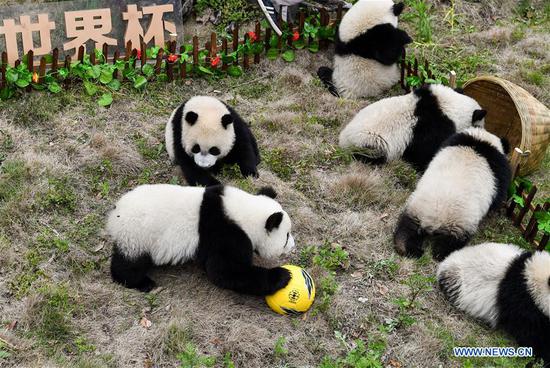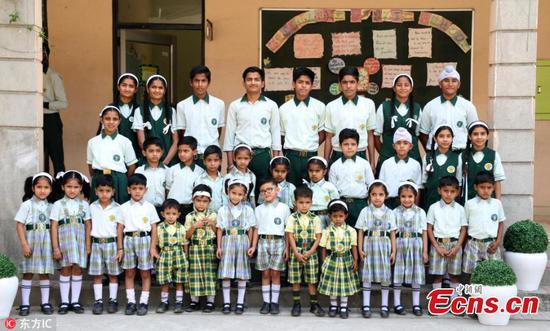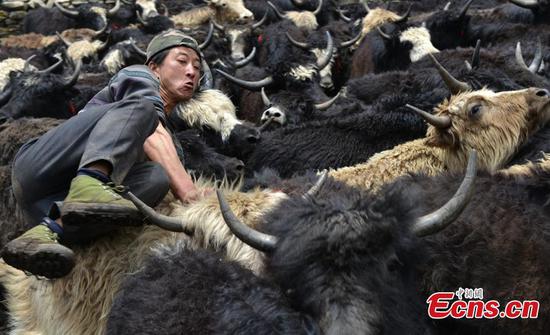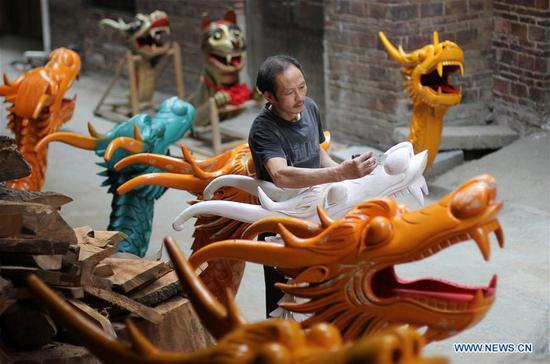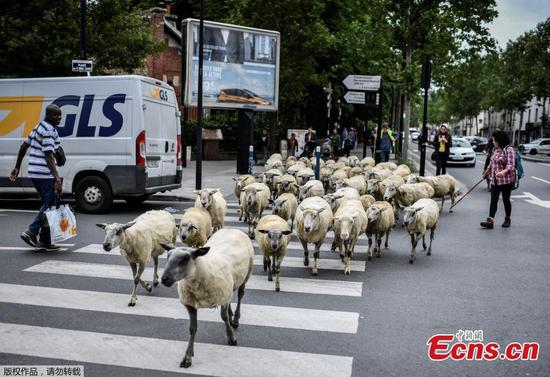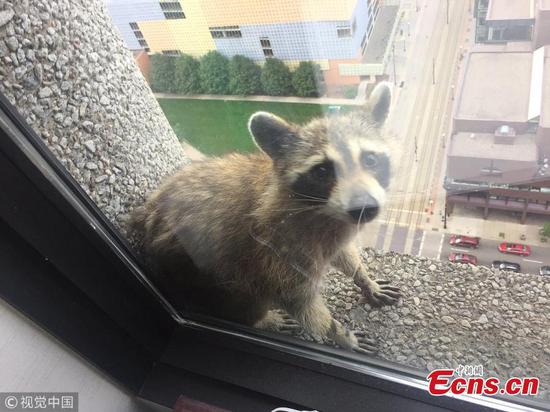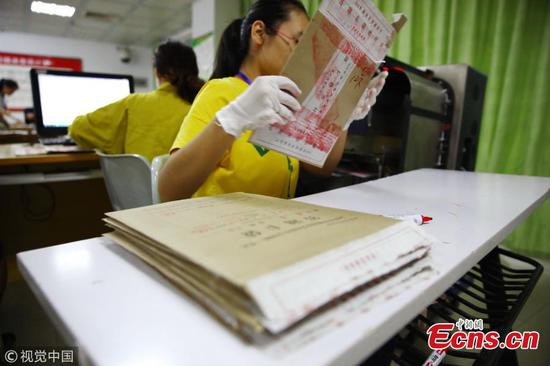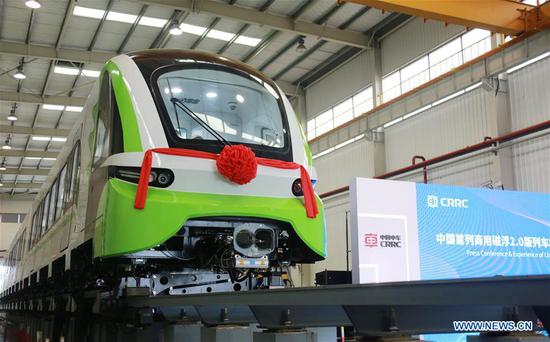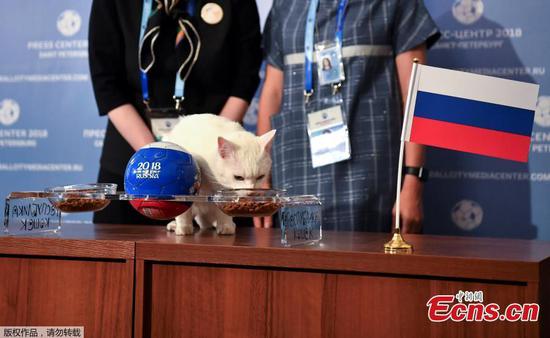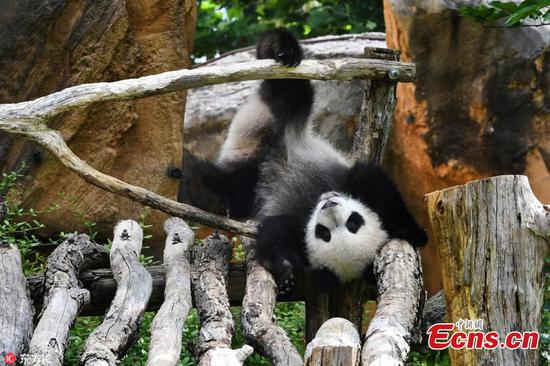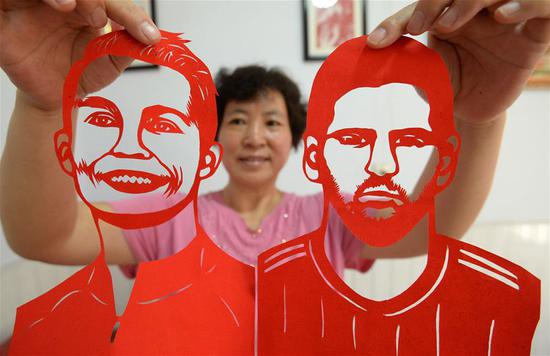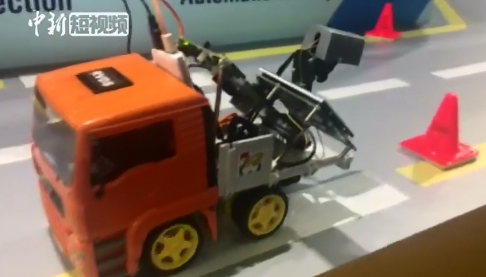
A dog is led through a display of pet toys in Guangzhou, Guangdong province. LIAO SHUPEI/CHINA NEWS SERVICE
Owning a pet or a few of them has become an increasingly popular lifestyle choice in China, as well as a driving force for consumption.
Yet behind the pet boom, problems - such as abuse, abandonment, and quality of pet supplies - have also emerged.
The best solution is regulation to allow people and animals to live in harmony, said He Hairen, researcher in legal studies with the Chinese Academy of Social Sciences (CASS).
PET BOOM IN CHINA
An event gathering rescued stray cats and dogs, animal lovers, vets, pet supplies businesses and celebrities was held on Saturday in celebration of the 58th Beijing Pet Adoption Day.
"We provide online and offline platforms where healthy, friendly and well-trained rescues are introduced to families who are ready to keep a pet," said Yang Yang, co-founder and chief executive of the non-profit "Adoption Day" charity.
Founded in 2011, the platform has expanded into more than 40 major to medium-sized cities.
In Beijing, more than one million households own at least one pet dog, based on the number of pet registration licenses, according to the Capital Animal Welfare Association (CAWA).
An equal number of - if not more - families are likely to have cats, since no license is required for them, said Qin Xiaona, president of the association.
For those who don't have pets, "cloud cat-sniffing" has been gaining popularity throughout China's social networks.
Wang Zhengjun, a PhD candidate at Northeastern University, is known as a "pet-less pet blogger" on Sina Weibo. He creates funny memes and stories about other pet bloggers' cats.
"I love cats, but I don't have any yet because I don't have a job or own an apartment, which means I am not capable of offering a comfortable life for an animal," he said.
"I 'sniff' other people's adorable cats online," he explained. "Cloud cat-sniffing is a great stress-release method and a kind of community."
"I collect items with cat images on them, watch movies and documentaries on cats, and read books on how to be a good carer for cats," he said.
On Taobao.com, one of the country's major e-commerce marketplaces operatered by Alibaba Group, 8.4 billion yuan was spent on merchandise related to cats in 2017.
By coincidence or by design, the e-commerce group's other major B2C platform Tmall.com is represented by a cartoon black cat.
On the other hand, with 2018 being "the year of the dog" in the Chinese horoscope, images of canines have appeared on all kinds of product designs.
"NEKONOMICS" IN CHINA
For businesses, the growing love that Chinese are expressing towards their furry friends is undoubtedly a huge opportunity to explore, especially given the vast market scale.
"It is certain that pet-related industries will continue to soar as our economy grows," said Wang Jiayi, brand manager and cat behaviorist with Naja Veterinary Clinics.
Food, toys, medical care, furniture, photography, electronic devices such as GPS collars...the potential is infinite, she said.
Wang, who is also founder of Catman Club Ltd., a company that provides cultural and social services for cat lovers in China, said that more Chinese are becoming pet owners.
"Nekonomics" is a term invented by Japanese scholars to describe the economic effect when cat-related goods, cultural content and services sell well, and push the overall economy to grow.
Kanshiro Miyamoto, emeritus professor of Kansai University, estimated that this phenomenon created 2,162.2 billion yen in 2015, and it would become larger than the economic effect of the 2020 Tokyo Olympic Games.
In a recent report, the Japanese Nikkei newspaper suggested that China's cat food market will exceed Japan in 2020 by reaching 1.8 billion U.S. dollars per year.
A 2017 study by a U.S. market research institute said that China's pet electronic device market value had reached 1 billion dollars by end of 2016, predicting that it would expand to over one-fifth of the global market share in 24 years.
"That sounds about right," said "Rabbit-eating Carrot," a Weibo blogger whose two cats - named Three-less and Four-less - have over 1.5 million followers on the Twitter-like social network.










